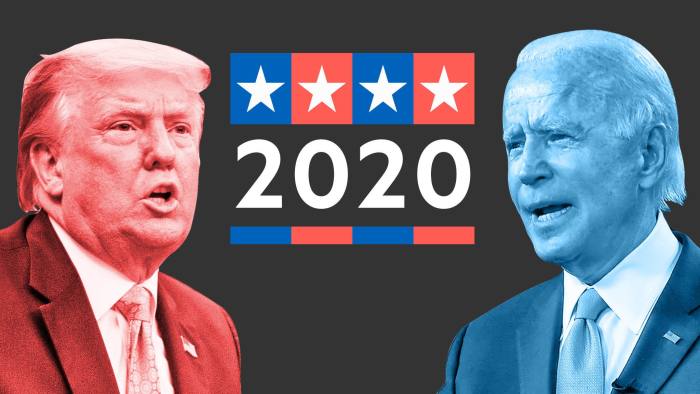
Pelosi rejects increased US stimulus offer
Nancy Pelosi, the Democratic speaker of the House of Representatives, has rejected a higher $1.8tn fiscal stimulus offer from the White House, dashing hopes of a breakthrough in the negotiations.
In a letter to Democratic lawmakers on Saturday, Ms Pelosi said the Trump administration’s latest proposal marked “one step forward, two steps back” and there were “disagreements on many priorities” in delivering more government relief to the US economy.
“When the President talks about wanting a bigger relief package, his proposal appears to mean that he wants more money at his discretion to grant or withhold, rather than agreeing on language prescribing how we honour our workers, crush the virus and put money in the pockets of workers,” Ms Pelosi wrote.
Economists and investors have been closely tracking the fate of the stimulus negotiations in Washington, as an agreement could help sustain the recovery in the coming months. Failure to strike a deal risks stalling or reversing the rebound.
Ms Pelosi and Steven Mnuchin, the US treasury secretary, have been attempting to strike a deal before the election, but have struggled to forge a compromise. Democrats have proposed — and passed legislation in the House — to inject $2.2tn in additional spending into the economy, but Republicans and the Trump administration have balked at the size of the package.
On Tuesday, US president Donald Trump abruptly instructed Mr Mnuchin to pull out of the talks, but following a strong backlash he reversed course and made a new push for a deal, saying he was ready to embrace a large fiscal stimulus bill. The $1.8tn offer made on Friday is well above what many Republican lawmakers who control the Senate would find palatable, but Ms Pelosi said it was still insufficient.
In her letter, the Democratic House speaker said that the White House still failed to include enough provisions for coronavirus testing and tracing, and worker safety protections. She said spending on child care was inadequate and the White House was resisting tax credits for poorer families. Ms Pelosi added that the Trump proposal on federal unemployment benefits remained $200bn below the levels supported by Democrats.
However Ms Pelosi did not entirely rule out the chance of a deal. “Despite these unaddressed concerns, I remain hopeful that yesterday’s developments will move us closer to an agreement on a relief package that addresses the health and economic crisis facing America’s families.
“As I have said before, the devil and the angels are in the details,” she said.
Swamp notes

In the countdown to the 2020 election, stay on top of the big campaign issues with our newsletter on US power and politics with columnists Rana Foroohar and Edward Luce. Sign up here
Although there is a consensus between the White House and Democrats on sending a new round of up to $1,200 in direct payments to individuals, the slow pace of the negotiations means they are increasingly unlikely to reach households before the November 3 election.
Alec Phillips, a policy analyst at Goldman Sachs, wrote on Friday that the “renewed urgency” from the Trump administration did lead to an “actual narrowing in positions” but a deal was still unlikely. “For now we still think the odds are against substantial pre-election stimulus even if the situation is murkier than it seemed only a few days ago,” Mr Phillips said.
